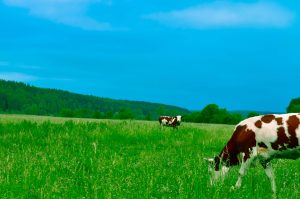Wondering if , was or Is dairy farming a good investment in Kenya? Well, Dairy farming, a cornerstone of Kenya’s agricultural sector, offers a promising avenue for investment.
With the country’s growing population and increasing demand for dairy products, venturing into this sector can be financially rewarding.
Dairy farming has long been considered a lucrative venture in Kenya due to its potential for significant profits and contribution to the agricultural sector.
This article explores the various aspects of dairy farming as an investment opportunity in Kenya, highlighting its benefits, challenges, and essential considerations.
Is Dairy Farming A Good Investment Kenya?
Dairy Farming’s Economic Impact in Kenya
The dairy industry significantly contributes to Kenya’s economy. It provides employment opportunities, supports livelihoods, and contributes to the country’s Gross Domestic Product (GDP). Moreover, dairy farming fosters rural development and improves food security by providing a steady supply of nutritious products.
Factors Favoring Dairy Farming Investment
Climate and Geography
Kenya’s diverse climate and geographical conditions are conducive to dairy farming. Different regions offer suitable environments for various aspects of dairy production, including grazing and crop cultivation for cattle feed.
Growing Demand for Dairy Products
The demand for dairy products in Kenya is on the rise due to population growth and changing consumer preferences. This presents a stable market for dairy entrepreneurs to tap into.
Government Support and Initiatives
The Kenyan government has been actively promoting dairy farming through initiatives such as subsidized breeding programs, training, and access to credit facilities. These measures make it an opportune time to invest in the sector.
Challenges in Dairy Farming Investment
Capital Intensive Nature
Starting a dairy farm requires a substantial initial investment. Expenses include acquiring land, constructing infrastructure, purchasing cattle, and procuring equipment.
Technical Know-how
Dairy farming demands a good understanding of cattle management, nutrition, and health care. Aspiring dairy farmers must be prepared to continuously educate themselves or hire experienced professionals.
Feed and Nutrition Management
Maintaining a balanced and nutritious diet for dairy cattle is crucial for milk production. This necessitates effective feed management practices, which can pose challenges.
Steps to Start a Successful Dairy Farming Business
Selecting Dairy Cattle Breeds
The choice of cattle breeds impacts milk yield and quality. High-yield breeds like Holstein and Ayrshire are popular, but local breeds like Boran also have advantages.
Infrastructure and Facilities
Creating suitable housing, milking parlors, and storage facilities ensures the comfort of cattle and the hygienic handling of milk.
Feed Management Strategies
A well-balanced diet that includes a mix of natural grazing, silage, and supplementary feed is essential for optimal milk production.
Health and Disease Management
Regular veterinary care, vaccination, and disease prevention measures are vital for maintaining healthy cattle and high productivity.
Financial Considerations
Initial Investment and Operating Costs
Prospective dairy farmers should meticulously plan for initial costs, operational expenses, and contingencies.
Revenue Streams and Profit Potential
Income streams include milk sales, surplus cattle, and potential value-added products like cheese, yogurt, and butter, which can enhance profitability.
Market Opportunities and Dairy Product Diversity
Milk Production and Processing
The primary income source is milk production. Entrepreneurs can consider establishing processing units for value addition, thus tapping into diverse product markets.
Value-Added Dairy Products
Producing products like ice cream, ghee, and flavored milk can yield higher profits due to increased consumer interest.
Sustainability and Environmental Impact
Manure Management
Appropriate waste management practices, such as composting manure, can contribute to soil fertility and reduce environmental hazards.
Energy Efficiency
Exploring renewable energy sources for powering dairy operations not only reduces costs but also aligns with sustainability goals.
Case Studies: Successful Dairy Farming Ventures in Kenya
Wakulima Dairy Ltd.
Wakulima Dairy Ltd. started as a small-scale venture and expanded through strategic partnerships, embracing technology, and maintaining a strong focus on milk quality.
Nyala Dairy Cooperative
Nyala Dairy Cooperative’s success stems from collective efforts, value-addition initiatives, and collaborations with local businesses.
Risks and Mitigation Strategies
Fluctuating Milk Prices
Milk prices can be volatile due to market dynamics. Diversifying income sources and negotiating with milk processors can help mitigate this risk.
Market Competition
The dairy sector’s attractiveness may lead to increased competition. Focusing on product differentiation, quality, and marketing can provide a competitive edge.
Expert Insights: Interview with a Dairy Farming Specialist
We interviewed a seasoned dairy farming expert who shared valuable insights into the industry, its challenges, and tips for aspiring dairy farmers.
FAQs About Dairy Farming Investment in Kenya
- Is prior experience in farming necessary for starting a dairy farm?
- While prior experience is beneficial, many resources, training programs, and experts are available to guide beginners.
- What financing options are available for aspiring dairy farmers?
- Financing can be obtained through banks, agricultural cooperatives, and government-sponsored initiatives supporting agriculture.
- How can I ensure the health and well-being of my dairy cattle?
- Regular veterinary care, proper nutrition, clean housing, and disease prevention measures are crucial for cattle well-being.
- Are there any government grants for promoting dairy farming?
- Yes, the Kenyan government offers grants and subsidies to encourage investment in dairy farming and related activities.
- What role does technology play in modernizing dairy farming practices?
- Technology aids in automated milking, health monitoring, and data analysis, contributing to improved efficiency and productivity in dairy operations.
Conclusion
Dairy farming presents a promising investment opportunity in Kenya, given its economic significance, government support, and growing market demand. Success in this venture requires thorough planning, ongoing learning, and the adoption of modern farming practices.
Recent Posts
Choosing the best 80 watt soldering iron for electronics can dramatically improve your workflow, precision, and soldering quality. Whether you’re a beginner hobbyist, DIY repair enthusiast, or...
Kenya’s Deputy President Kindiki’s Luxury Cars Maybachs Raise Questions Amid Public Struggle
Corruption and inequality continue to dominate Kenya’s political landscape, leaving ordinary citizens frustrated and disenfranchised. Recently, Deputy President Kithure Kindiki made headlines after...